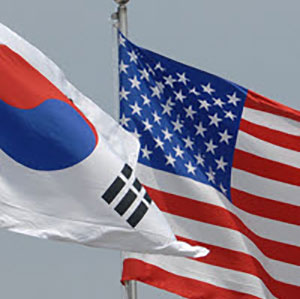Persuasion and Its Limits: A Practical Guide to Soft Power
Jenna Gibson outlines four considerations for thinking about when and how to implement a strategy to cultivate soft power and argues that policymakers should address concerns over soft power at the outset alongside hard-power conversations.
In his groundbreaking 2004 book on soft power, Joseph Nye described the concept of soft power in a deceptively simple way: “A country may obtain the outcomes it wants in world politics because other countries—admiring values, emulating its example, aspiring to its level of prosperity and openness—want to follow it.” At first glance, the idea that a country can get what it wants in the world without resorting to the costly and dangerous realm of more traditional, “hard” power, is incredibly appealing. However, in the decades since, scholars and policymakers alike have realized that the concept is more complicated than it first appears. What are the “outcomes” that a state might want to achieve through soft power? What values and examples do they want to share, and who is open to those same values? Who is persuadable, and under what circumstances?
Because of its nebulous nature, those who study soft power, as well as those who want to wield it, run the risk of losing track of the actual goals and potential outcomes at play. This commentary will focus on four practical considerations for thinking about when, and how, to implement a strategy to cultivate soft power. I then conclude with a discussion of how these considerations have at times facilitated, and at other times frustrated, soft-power diplomacy between the United States and South Korea.
Considerations in Soft-Power Policy
First, policymakers introducing soft-power policies must think about the ultimate goal they want to achieve. Is there a specific policy goal, such as gathering support for the passage of a development policy, or a general principle, such as being seen as a leader in supporting the Sustainable Development Goals? There are pros and cons to each approach. With a specific policy, it may be easier to implement reasonable steps toward measurable outcomes. At the same time, broad goals and principles are often more politically neutral and easier to get buy-in from diverse audiences.
Second, it is important to ask whether the goal is to generate a short-term response or invest in something that might not show results for years. Part of the trap for leaders is, understandably, wanting to invest in projects that pay immediate dividends with clear credit. Unfortunately, that is unrealistic for persuasion on this scale—the more one pushes for a quick result, the more one risks backlash from the very audiences an initiative is trying to attract. On the other hand, cultural or educational exchange programs work on a timeline of years, or even decades, but could generate much deeper and longer-lasting interest and support among participants.
Third, the messenger is key. Many attempts to capitalize on pop culture for soft power appear to assume that the mere presence or mention of a popular figure will attract attention. This may be true to some extent, but is the goal to generate attention or something more? Choosing the right messengers and integrating them with a message that is authentic is one way to transition from attention-grabbing moments to deeper messaging. Take, for example, the speeches by the K-pop band BTS at the United Nations, which specifically focused on issues like anti-bullying, youth empowerment, and charitable works—messages that the band already had referenced across their music and in engagement with their fans. The messages felt authentic to the messenger and, therefore, to the fans watching.
Finally, one of the most difficult considerations in deciding when and how to invest in a soft-power strategy is knowing when it is not the right strategy. Some of the big impediments to soft power are other policies that undermine or block a state’s ability to attract positive attention abroad. In some circumstances, if the goal is to use soft power as a way to distract from or improve responses to a very unpopular policy, it is unlikely to be successful. The quintessential example of this was the “hearts and minds” strategy used in several conflicts, including most recently the Iraq War. Subsequent analysis has concluded that this strategy was highly unsuccessful in terms of trying to create a disconnect between cultural outreach efforts even as an unpopular conflict continued to claim lives.
In short, soft-power strategies should consider goals, including whether they are working to generate specific, short-term outcomes or more general, long-term shifts in public opinion. These strategies should work to find messengers with an authentic voice who can speak to that goal and generate genuine interest among audiences. And, finally, policymakers need to integrate concerns over soft power from the beginning alongside more traditional, hard-power conversations, rather than trying to put a bandage on unpopular policies after the fact.
Opportunities in U.S.–South Korea Soft Power
Much of the conversation about South Korean soft power has reflected some of the same misconceptions mentioned above. Merely pointing out the popularity of K-pop groups like BTS, or marveling over Netflix streaming numbers for Squid Game, is not the same thing as soft power per se. That being said, the overwhelming interest in Korean popular culture does provide opportunities for authentic conversations on shared values and interests.
Think again of BTS speaking about anti-bullying campaigns or sustainable development at the United Nations. This is what it looks like to begin directing incredibly impressive global popularity toward positive political change through shared values. Squid Game, interestingly, has almost had the opposite effect. A show about the horrors of economic inequality has led to multiple copycats recreating the very game that was meant to be a cautionary tale. This goes to show that we cannot necessarily draw a straight line from cultural popularity to political power—the audience will always interpret the intended message in its own ways.
At the same time, there are many obstacles to cultivating soft power that can hamper efforts in the short to medium term. Political turmoil in both the United States and South Korea makes investing in shared values difficult and is not high on the list of current government priorities in either country. Thus, maintaining exchanges, building people-to-people ties, and investing in long-term connections may be more important than ever. It is important, for example, to nurture the strong interest among younger generations in not just consuming Korean popular culture but building fan communities, studying abroad, and expressing themselves through the connections they forge.
Soft-power cultivation today could take the form of investing in opportunities for exchange programs or finding ways for authentic messengers to communicate with and encourage those communities. Cultivation could also include drawing more on the strong Korean American community, which has been represented in popular culture in both countries and for which the cultural ties and values of both countries are particularly salient. Nurturing soft power is more important than ever, even if concrete outcomes are not measurable until the medium or long term.
Jenna Gibson is a PhD candidate in the Department of Political Science at the University of Chicago.



